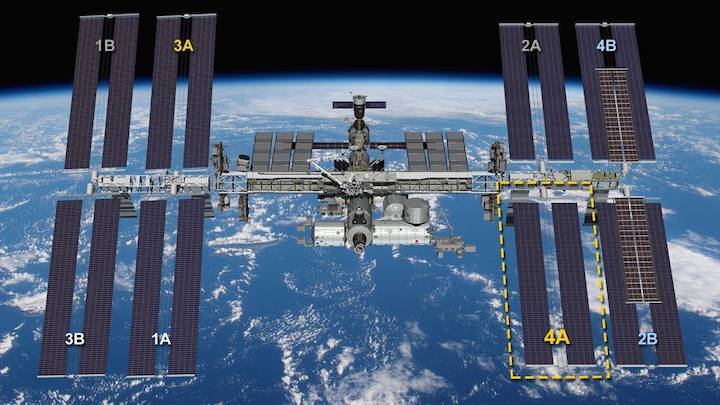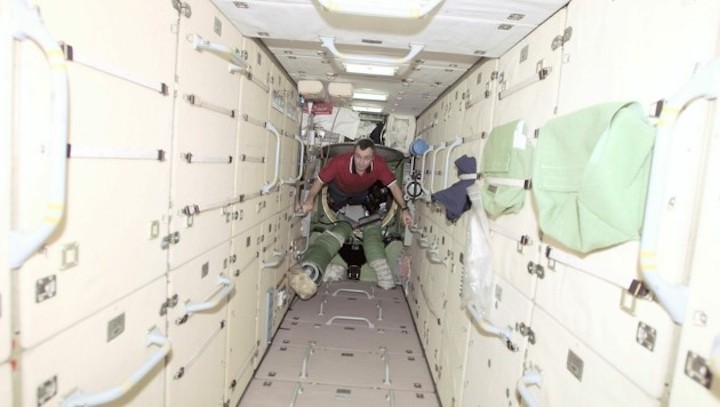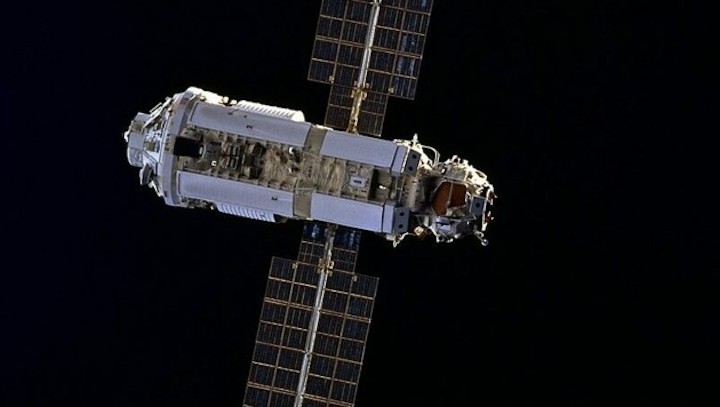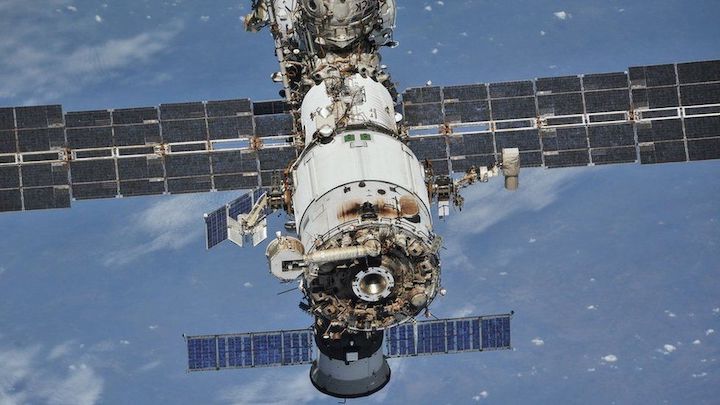31.08.2021

Auf der Internationalen Raumstation ISS sind in einem älteren Modul neue Risse entdeckt worden. Die Lage gefalle ihm nicht, sagte der Flugdirektor des russischen Teils der ISS, Wladimir Solowjow, der Staatsagentur Ria Nowosti. Die Risse seien bei der Vermessung der Station im ältesten Modul „Sarja“ (Morgenröte) des Außenpostens der Menschheit im All gefunden worden.
Noch seien die betroffenen Stellen nicht aufgebrochen, sodass dort Luft entweichen könnte. Das könne aber mit der Zeit passieren, meinte der Experte. Die Systeme des russischen ISS-Segments seien in hohem Maße verschlissen. Die Hersteller gäben keine Garantie, dass sie nicht nach 2025 ausfielen, erklärte Solowjow.

Roskosmos: „Keine Gefahr für die Besatzung“
Die Raumfahrer auf der ISS haben bereits seit Monaten mit Lecks im russischen Modul „Swesda“ (Stern) zu kämpfen. Dort war es zeitweise auch zum Druckabfall gekommen. Einige dieser Stellen wurden abgedichtet. Die Suche nach weiteren Löchern dauert an. Die russische Raumfahrtbehörde Roskosmos betonte, dass keine Gefahr für die Besatzung bestehe.
„Sarja“ war das allererste Modul der ISS. Es wurde im November 1998 mit einer russischen Proton-K-Rakete ins All (Bild unten) gebracht, wo es wenige Tage später im Rahmen der Spaceshuttle-Mission STS-88 mit dem ersten US-Modul der Raumstation, dem Kopplungsknoten „Unity“ verbunden wurde. Bis zum Sommer 2000 übernahm „Sarja“ die komplette Energieversorgung, die Lageregelung sowie die Klimasteuerung für die ISS.

Derzeit wird darüber beraten, wie lange der gemeinsam mit den USA und anderen Ländern betriebene Außenposten der Menschheit in rund 400 Kilometern Höhe noch genutzt werden soll. Der Vertrag läuft 2024 aus.
Quelle: krone.at
----
Update: 2.09.2021
.
International Space Station facing irreparable failures, Russia warns

The International Space Station (ISS) could suffer "irreparable" failures due to outdated equipment and hardware, a Russian official has warned.
At least 80 percent of in-flight systems on the Russian segment of the ISS had passed their expiry date, Vladimir Solovyov told state media.
He also said small cracks had been discovered that could worsen over time.
Russia has often raised concerns over hardware and has suggested it could leave the ISS after 2025.
The station was built in 1998 as part of a joint project between Russia, America, Canada, Japan and several European countries and was originally designed for a 15-year lifespan.
Mr Solovyov, the chief engineer at the space company Energia, which is the leading developer of Russia's section of the ISS, said: "Literally a day after the [in-flight] systems are fully exhausted, irreparable failures may begin."
He warned last year that much of the equipment on the station was starting to age and would soon need to be replaced.
The former cosmonaut also announced that "superficial" cracks had been discovered on Russia's Zarya cargo module. Launched in 1998, it is one of the oldest modules of the ISS and is now primarily used for storage.
"This is bad and suggests that the fissures will begin to spread over time," Mr Solovyov told the RIA news agency.
In April, Russia's Deputy Prime Minister Yuri Borisov told state TV that aging metal on the station could "lead to irreversible consequences - to catastrophe. We mustn't let that happen".
And Roscosmos, the Russian space agency, said last year that structural fatigue meant the ISS would not be capable of operating beyond 2030.
Russia's space programme has been hit by a series of budget cuts and corruption scandals in recent years. Its section of the ISS has also faced a string of problems.
In July, a malfunction caused the jet thrusters on the country's Nauka research model to fire without warning, destabilising the ISS.
Its Zvezda service module, which provides living quarters for ISS crew members, has also experienced several air leaks since 2019.
Despite these setbacks, the country's space agency has promised a series of ambitious ventures, including a mission to Venus, the creation of a rocket capable of making round trips into space and a mission to the Moon's surface next year.
Quelle: BBC
